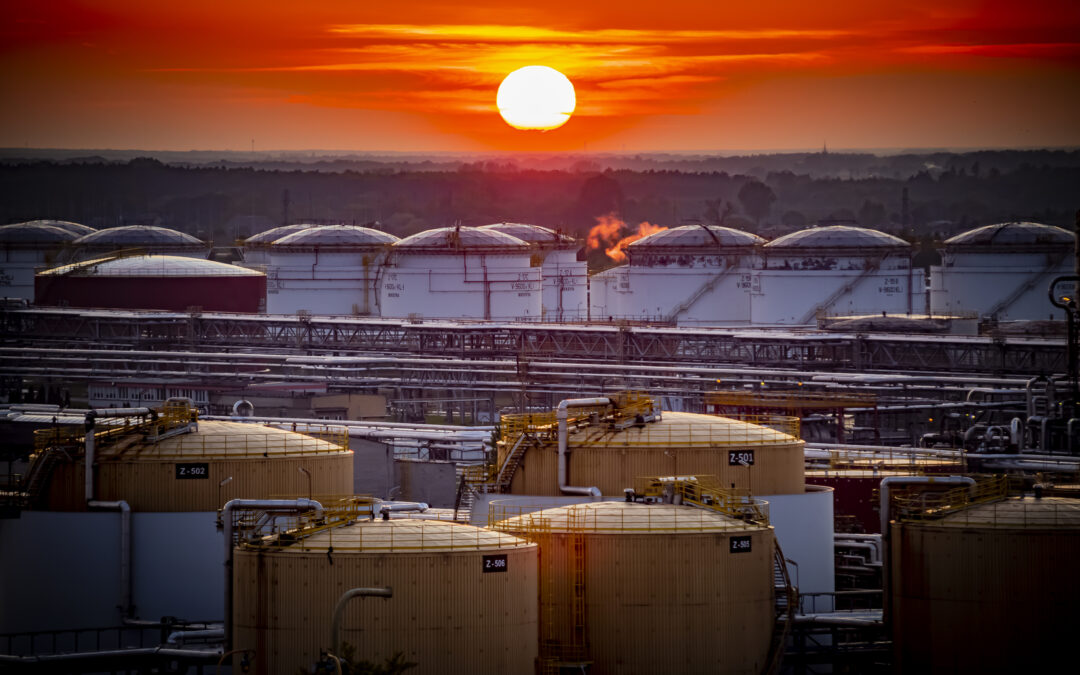Poland’s main importer of oil, state energy giant Orlen, is still getting around 10% of its supplies from Russia, deputy state assets minister Maciej Małecki has confirmed to parliament.
In March year, the government pledged to end all energy imports from Russia by the end of 2022, in what the prime minister called “the most radical plan in Europe to depart from Russian oil”. Now, however, Małecki says Poland cannot break an oil import contract for 2023 without a European Union embargo.
At the start of December, Orlen CEO Daniel Obajtek noted that his firm had reduced Russian oil to 30% of the crude supplied to its refineries, down from around 50% in April. That included completely stopping seaborne deliveries ahead of an EU embargo on such imports that went into force on 5 December.
Business Insider Polska estimates that Orlen’s purchases of oil from Russia fell by 62% in the third quarter of 2022 compared to the same period a year earlier.
Later in December, the head of Transneft, Russia’s state-controlled pipeline operator, said that Poland had requested further deliveries of oil in 2023 through the Druzhba pipeline.
In response, Orlen told the Rzeczpospolita daily that it had a “binding contract for the supply of Russian oil in 2023 [that] will cease to be implemented when [EU] sanctions are introduced”. However, it added that it had not renewed another oil contract with Russia that expired at the end of January 2023.
Russia’s Vedomosti business daily reported that Poland was the EU’s biggest importer of Russian oil in January, ahead of Slovakia, Czech Republic and Hungary (which are much smaller countries than Poland).
In a statement issued at the start of February, Orlen confirmed that it would still be receiving around 10% of its oil from Russia but repeated that it was “fully prepared” to reduce this to zero “if further sanctions on imports [from Russia] are introduced” by the EU.
Jeszcze w 2015 r. niemal cała ropa w Grupie ORLEN pochodziła z Rosji. Wraz z wygaśnięciem kontraktu terminowego, po raz pierwszy w historii ok. 90% surowca w naszych rafineriach pochodzi z kierunków alternatywnych. To budowane przez nas realne bezpieczeństwo i niezależność 🇵🇱
— Daniel Obajtek (@DanielObajtek) February 1, 2023
Yesterday in parliament, opposition MPs questioned Małecki about why Russian oil continues to flow into Poland.
The deputy minister noted that Orlen had lowered imports to the greatest possible degree but could not go further without risking having to pay damages for violating its contracts. He said it was up to the opposition’s “colleagues in Brussels to introduce an EU-wide embargo”.
Małecki also claimed that when Civic Platform (PO), the main opposition party, was previously in power the share of Russian oil in Polish refineries reached 100%, reports the wPolityce news website.
Poland’s Supreme Audit Office is seeking charges against the country’s largest company, energy giant Orlen, after the firm refused attempts by NIK to audit it.
Orlen argues that the audits had no legal basis and it therefore could not cooperate with them https://t.co/nG55wR8b75
— Notes from Poland 🇵🇱 (@notesfrompoland) February 1, 2023
Main image credit: Orlen press materials

Daniel Tilles is editor-in-chief of Notes from Poland. He has written on Polish affairs for a wide range of publications, including Foreign Policy, POLITICO Europe, EUobserver and Dziennik Gazeta Prawna.




















